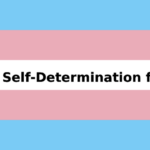Do Courts Have to Use Preferred Pronouns for Transgender Defendants in Criminal Cases?

Earlier this month, children’s book author JK Rowling tweeted the following in regard to a new practice note that applies to South Australian courts regarding preferred pronouns:
Asking a woman to refer to her male rapist or violent assaulter as ‘she’ in court is a form of state-sanctioned abuse. Female victims of male violence are further traumatised by being forced to speak a lie.
Her concern was that complainants in sexual assault cases in South Australian courts would be forced by this protocol to refer to transgender defendants by their preferred pronouns when giving evidence.
But is there any truth to this claim? And what are standard court practices for preferred pronouns?
Court protocols on preferred pronouns in Australia
Court guidelines regarding preferred pronouns are generally found in practice notes and bench books which guide judges on best practice in the courtroom.
The new protocol in South Australia outlines a process for legal practitioners to inform the court about the pronunciation of names, preferred titles, and gender pronouns of barristers, parties (including defendants), witnesses, interpreters, solicitors, and entities.
However, it does not oblige judges or any other party to follow these preferences once the court is informed.
Similar protocols are currently in place in Victoria and Queensland courts.
Whilst no explicit practice note on pronouns exists for New South Wales courts, it’s not uncommon for legal practitioners to inform the court about the pronunciation of names, preferred titles and gender pronouns as a matter of practice.
Do complainants in sexual offence cases need to refer to transgender defendants by preferred pronouns?
The short answer to this question is no.
There is no courtroom in Australia in which a complainant (or any other witnesses, party or judge) required to refer to transgender defendants by their preferred pronouns.
In an unusual step, Chief Justice of the Supreme Court of South Australia, the Honourable Chris Kourakis issued a statement making it clear that JK Rowling and other critics of the practice note had misunderstood its scope.
His Honour stated as follows:
Unfortunately, Ms Rowling has misunderstood the protocol. It does no more than allow lawyers and others to inform the court of the correct pronunciation of their name and their preferred gender pronoun so that proceedings are conducted respectfully. However, the presiding judicial officer retains control over all forms of address used in court.
For many decades, the courts of this State have taken every care to protect victims of crime and other vulnerable witnesses from the distress and trauma which might arise from their participation in a hearing. A victim of crime would never be asked to address an accused person in a way which caused the victim distress.
I would prefer that social media commentators took the time to properly inform themselves before pressing the send button, but my only concern is to assure the South Australian public that Ms Rowling’s anxiety is completely unfounded.
Do judges need to refer to transgender defendants by preferred pronouns in NSW?
In New South Wales, it is entirely a matter for the presiding judge as to whether or not to use the preferred pronouns of a transgender defendant.
Whilst this does occur in many cases, the court has demonstrated some wariness about using preferred pronouns in sexual offence cases, particularly where claimed transgender identity is recent.
For example, in a recent sentencing appeal heard by the NSW Court of Appeal, the Court had this to say regarding the preferred pronouns of a transgender defendant convicted of child sexual offences:
- The applicant was born and has lived his life until recently as a male. All the applicant’s crimes were committed as a man, and much of the documentary record, including evidence tendered on sentence, refers to the applicant by using the male pronouns “he / his / him”. Recently, the applicant has expressed the wish to live as and be seen to be a woman. The applicant now prefers to be referred to by the feminine pronoun. No gender reassignment surgery has taken place.
- In this judgment, where pronoun use is necessary, it will be given to reflect the applicant’s accepted gender at the relevant time, more accurately reflecting the reality of the applicant’s life and crimes. To refer to the applicant as female at the time of the offences would lead to confusion and even absurdity.
Going to court for a criminal offence?
If you are going to court over a criminal case, call Sydney Criminal Lawyers anytime on 9261 8881 to arrange a free first conference during which one of our experienced defence lawyers will assess the case, advise you of your options and the best way forward, and fight for the optimal outcome.






